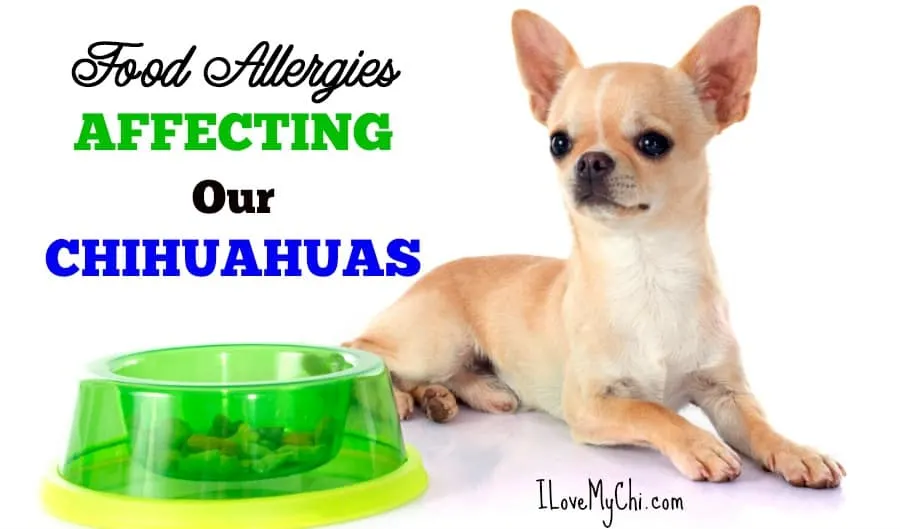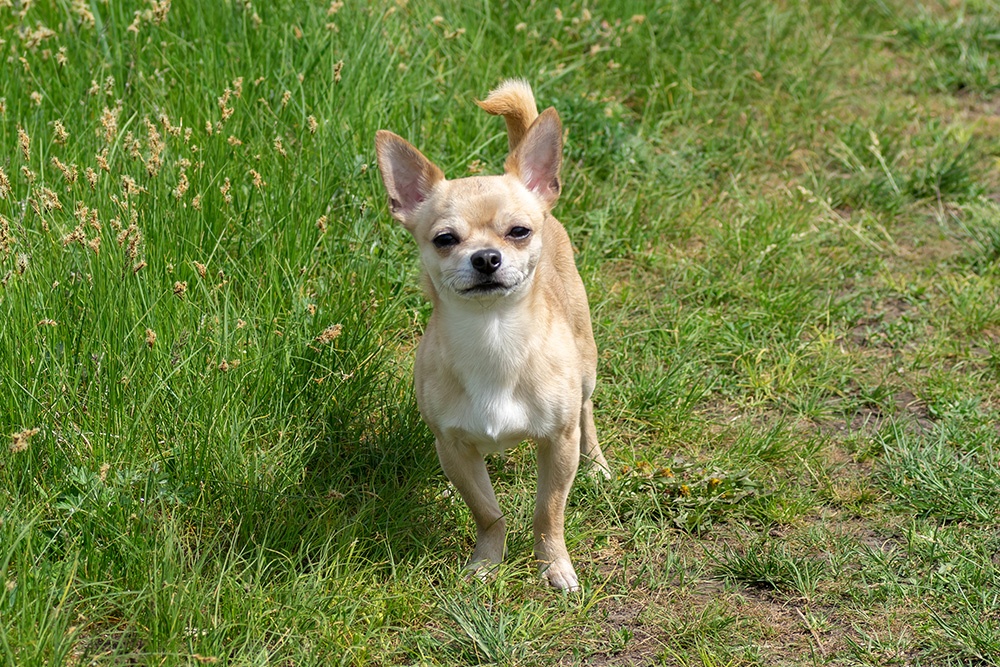As a professional, I am often asked what chihuahuas are allergic to. Surprisingly, chihuahuas can be allergic to a range of things, including certain foods, pollen, dust mites, and even certain types of fabric. It’s important for owners to be aware of these potential allergens so they can take the necessary precautions to keep their chihuahuas healthy and comfortable.
Chihuahuas have a history of allergies due to their sensitive immune systems. This breed is more prone to skin allergies and respiratory issues compared to other breeds. In fact, studies have shown that up to 40% of chihuahuas are affected by allergies. Common symptoms include itching, sneezing, coughing, and skin rashes. To alleviate these symptoms, it is essential to identify and minimize exposure to allergens, whether it’s through dietary changes, regular cleaning, or using hypoallergenic bedding and clothing. Seeking guidance from a veterinarian can help ensure proper management of chihuahua allergies and improve their quality of life.
What Are Chihuahuas Allergic To? Understanding and Managing Allergies in Chihuahuas
The Common Allergens That Affect Chihuahuas
Chihuahuas, like any other breed of dog, can develop allergies to various substances. It’s essential for owners to be aware of common allergens so they can take steps to minimize their dog’s exposure and prevent allergic reactions. Some of the most common allergens that affect Chihuahuas include:
1. Pollen: Chihuahuas, like humans, can be allergic to pollen from grasses, trees, and flowers. These allergies are often seasonal and cause symptoms like itching, sneezing, and watery eyes.
2. Dust Mites: These microscopic insects can be found in bedding, carpets, and upholstery. Chihuahuas can have allergic reactions to dust mites, which can lead to itchy skin and respiratory problems.
3. Mold: Chihuahuas are susceptible to mold allergies, which can be caused by exposure to damp areas such as basements or bathrooms. Mold spores can trigger allergic reactions and lead to symptoms like coughing, wheezing, and skin irritation.
Tips for Managing Chihuahua Allergies:
If you suspect your Chihuahua has allergies, it’s important to consult with a veterinarian for an accurate diagnosis and treatment plan. Here are some tips to help manage your Chihuahua’s allergies:
1. Reduce Exposure to Allergens: Keep your Chihuahua’s living environment clean by regularly vacuuming, dusting, and washing their bedding. Consider using hypoallergenic products and keeping windows closed during allergy seasons.
2. Bathe Your Chihuahua Regularly: Regular baths can help remove allergens from your Chihuahua’s skin and coat. Use a gentle, hypoallergenic shampoo recommended by your veterinarian.
3. Feed a High-Quality Diet: A balanced and nutritious diet can strengthen your Chihuahua’s immune system and help manage allergies. Talk to your veterinarian about the best diet for your Chihuahua’s specific needs.
When to Seek Veterinary Care:
While managing your Chihuahua’s allergies at home is possible, there are times when veterinary care is necessary. If your Chihuahua experiences severe allergic reactions, persistent itching, or skin infections, it’s important to seek professional help. Your veterinarian can determine the underlying cause of the allergies and prescribe appropriate medication or recommend allergy testing if needed.
Preventing and Treating Chihuahua Allergies
Prevention is key when it comes to managing allergies in Chihuahuas. By identifying and avoiding allergens, you can minimize your dog’s exposure and reduce the frequency and severity of allergic reactions. Here are some additional allergens to be cautious of when it comes to Chihuahuas:
1. Fleas and Flea Allergy Dermatitis: Flea bites can cause intense itching and discomfort for Chihuahuas with flea allergies. Regular flea prevention measures and prompt treatment at the first sign of fleas are crucial in preventing allergic reactions.
2. Food Allergies: Chihuahuas can develop allergies to certain ingredients in their food, such as beef, chicken, soy, or grains. If you suspect your Chihuahua has a food allergy, your veterinarian may recommend an elimination diet or allergy testing to determine the specific allergen.
3. Chemicals and Household Cleaners: Some Chihuahuas may be sensitive to certain chemicals found in household cleaners, air fresheners, or even certain types of fabric. It’s important to use pet-friendly and non-toxic products in your home to minimize the risk of allergic reactions.
Tips for Preventing and Treating Chihuahua Allergies:
In addition to the previous tips, here are some more ways to prevent and treat allergies in Chihuahuas:
1. Regular Grooming: Regular brushing and grooming can help remove allergens from your Chihuahua’s coat and skin. It’s also important to keep their ears clean and dry to prevent the growth of bacteria and yeast.
2. Allergy Medications: Your veterinarian may prescribe allergy medications, such as antihistamines or corticosteroids, to relieve your Chihuahua’s allergic symptoms. It’s crucial to follow your veterinarian’s instructions and not to administer any medication without their guidance.
3. Allergy Testing: In severe or recurring cases, your veterinarian may recommend allergy testing to identify the specific allergens that affect your Chihuahua. This can help you implement targeted strategies to minimize exposure and manage allergies effectively.
Living with a Chihuahua with Allergies: Tips and Advice
Living with a Chihuahua with allergies can present unique challenges, but with proper management and care, you can ensure your furry friend leads a comfortable and happy life. Here are some additional tips and advice:
1. Monitor Your Chihuahua’s Symptoms: Keep a close eye on your Chihuahua’s symptoms and document any changes or patterns. This information can be helpful during veterinary appointments and can help you identify triggers and manage allergies effectively.
2. Seek Support from Other Chihuahua Owners: Connect with other Chihuahua owners who have experience managing allergies. They can offer guidance, share tips, and provide support during challenging times.
3. Consider Natural Remedies: Some owners find relief for their Chihuahuas’ allergies through natural remedies such as herbal supplements, coconut oil, or homeopathic treatments. However, always consult with your veterinarian before trying any alternative therapies.
4. Be Patient and Persistent: Managing allergies in Chihuahuas requires patience and persistence. It may take time to find the right combination of prevention measures and treatments that work best for your Chihuahua. Don’t get discouraged and continue working closely with your veterinarian to find the right solution.
By understanding what allergens Chihuahuas are commonly sensitive to and implementing appropriate preventive measures and treatments, you can help your furry companion live a happy and healthy life, free from the discomfort of allergies. If you suspect your Chihuahua may have allergies, it’s crucial to consult with a veterinarian for proper diagnosis and personalized care. Remember, each Chihuahua is unique, and your veterinarian can provide the best guidance and support tailored to your dog’s specific needs.
Key Takeaways: What Are Chihuahuas Allergic To?
- Chihuahuas can be allergic to certain foods such as grains, dairy, and chicken.
- Environmental allergens like pollen, dust mites, and mold can trigger allergic reactions in Chihuahuas.
- Chihuahuas may also be allergic to flea bites, so regular flea prevention is important.
- Some Chihuahuas are sensitive to certain types of grooming products, like shampoos or perfumes.
- It’s essential to monitor your Chihuahua for symptoms of allergies, such as itching, sneezing, or digestive issues, and consult with a veterinarian for proper diagnosis and treatment.
Frequently Asked Questions
Welcome to our FAQ section on Chihuahuas and allergies! Below, you’ll find answers to common questions regarding the allergies that Chihuahuas may experience. Find out what your furry friend might be allergic to and how best to manage their allergies for a healthy, happy pup!
1. What are common allergens that Chihuahuas are sensitive to?
Chihuahuas can be sensitive to a variety of allergens, but some common ones include pollen, dust mites, certain foods, and fleas. Pollen allergies can cause sneezing, itching, and watery eyes, while dust mite allergies can lead to respiratory issues and skin irritation. Food allergies often manifest as digestive issues, skin problems, or itching. Flea allergies are another common concern, as Chihuahuas can have strong reactions to flea bites, leading to intense itching and discomfort.
If your Chihuahua exhibits symptoms of allergies, it’s important to work with a veterinarian to identify the specific allergens and develop a management plan.
2. How can I tell if my Chihuahua has allergies?
It can sometimes be challenging to determine if your Chihuahua has allergies, as the symptoms may vary. Look out for signs such as excessive itching, red and inflamed skin, hair loss, recurring ear infections, sneezing, coughing, or gastrointestinal issues like vomiting or diarrhea. If you notice any of these symptoms, it’s best to consult with a veterinarian for a proper diagnosis.
Your vet may perform skin or blood tests to identify the specific allergens causing your Chihuahua’s symptoms. They will then work with you to develop a treatment plan to manage the allergies effectively.
3. Can Chihuahuas have seasonal allergies like humans?
Yes, Chihuahuas can have seasonal allergies similar to humans. They can be sensitive to pollen from grasses, trees, or flowers that bloom during specific seasons. During these times, your Chihuahua may experience symptoms like sneezing, runny nose, itchy skin, and watery eyes. To help alleviate their discomfort, try keeping your Chihuahua indoors during high pollen count days or wipe their paws and coat with a damp cloth after outdoor walks.
Consult with your veterinarian to discuss possible allergy medications or treatments that can provide relief during allergy seasons.
4. Are there any food allergies specific to Chihuahuas?
Chihuahuas can develop food allergies, and some common allergens for them include chicken, beef, dairy products, wheat, and soy. A Chihuahua with a food allergy may experience symptoms like itching, gastrointestinal issues, ear infections, or skin problems. If you suspect your Chihuahua has a food allergy, your veterinarian may recommend an elimination diet or allergy test to identify the specific allergen and guide their dietary needs.
Once the allergen is identified, your vet can help you find suitable alternative foods or recommend hypoallergenic options to prevent future allergic reactions.
5. How can I manage my Chihuahua’s allergies?
Managing your Chihuahua’s allergies involves a multi-faceted approach. Your veterinarian may suggest allergy medications, hypoallergenic diets, or allergy shots to help alleviate symptoms. It’s important to create an allergy-friendly environment by regularly cleaning your home, using hypoallergenic bedding, and reducing exposure to potential allergens like dust or pollen.
Regular grooming, including frequent baths with a hypoallergenic shampoo, can help reduce allergens on your Chihuahua’s skin and coat. Additionally, addressing any flea infestations promptly can prevent flea allergies. Finally, working closely with your veterinarian and following their recommendations will ensure your Chihuahua receives the best care and management for their allergies.

